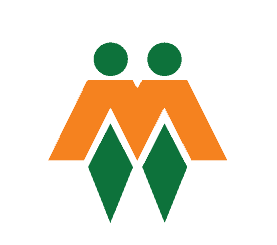AfriForum’s blue and green drop project: Eastern Cape’s water quality tested
AfriForum’s national blue and green drop project focuses on the quality of the drinking water and sewage plants of towns. The project does not necessarily focus on the condition of the sewage plant itself, but rather on the quality of water released after the process as end result in the form of drinking water (blue drop) and treated sewage (green drop).
During May and June 2017, AfriForum tested the water of a number of towns and areas in the Eastern Cape to determine the quality of the municipal drinking and sewage water.
Tarkastad
It was established that the drinking water in Tarkastad is clean and contains no heavy metals, while bacteria levels adhere to applicable standards. However, the civil rights organisation expressed its concern regarding the sewage water which does not adhere to applicable standards.
Molteno and Sterkstroom
It was established that the drinking water of both towns is clean and contains no heavy metals, while bacteria levels adhere to applicable standards. There is some concern however that sewage water does not adhere to applicable standards.
“We will have to give attention to these sewage plants. We cannot allow incompetent municipalities to pollute our water resources. With the mandate of the residents of Molteno and Sterkstroom, we are planning on taking action regarding this matter,” says Johandré van Zyl, AfriForum’s Assistant Coordinator for the Eastern Cape.
Cradock
Cradock’s drinking and sewage water was tested and it was established that it is clean and contains no heavy metals, while bacteria levels adhere to applicable standards.
Barkly East
Tests established that the drinking and sewage water of Barkly East is clean, contains no heavy metals, while bacteria levels adhere to applicable standards.
Elliot
AfriForum’s tests established that Elliot’s drinking and sewage water is clean and contains no heavy metals, while bacteria levels adhere to applicable standards.
Jeffrey’s Bay
It was established that the drinking water of Jeffrey’s Bay is free from an excess of phosphate and nitrate, while bacteria levels adhere to applicable standards.
However, concern was expressed regarding the high content of iron and manganese present in the borehole water and which leads to a brown-black deposit. AfriForum’s tests however had no relation to these metals.
The civil rights organisation is also concerned about the sewage water in Jeffrey’s Bay seeing as it does not adhere to applicable standards. The investigation team however concluded on the day which the tests were executed that two of the engines powering on the pumps had been out of order for 14 days already.
Port Elizabeth
Tests established that the drinking water in Port Elizabeth is clean and contains no heavy metals, while bacteria levels adhere to applicable standards.
However, there is some concern about the Swartkops River which indicates high levels of bacteria. “The problem with the Swartkops River is widely known and AfriForum will continuously place pressure on the municipality to ensure a healthy environment for the residents of Port Elizabeth,” says Thomas van Dalen, AfriForum’s Provincial Coordinator for the Eastern Cape.
AfriForum will continuously test the water quality of these towns to protect the constitutional rights of the residents.


